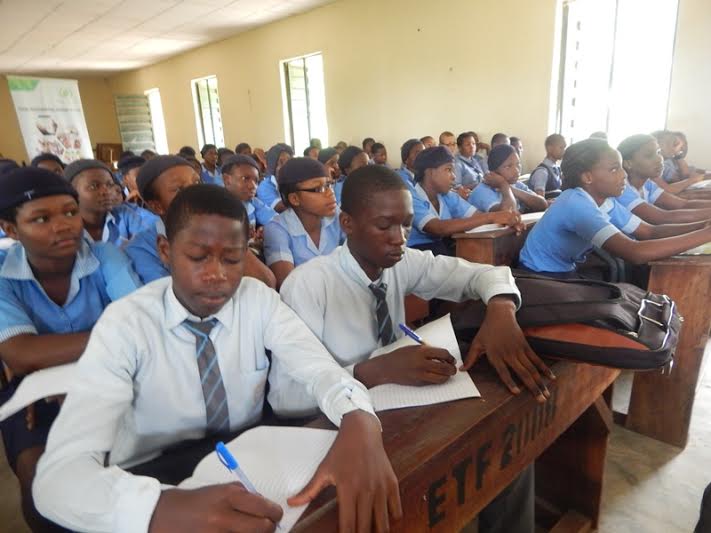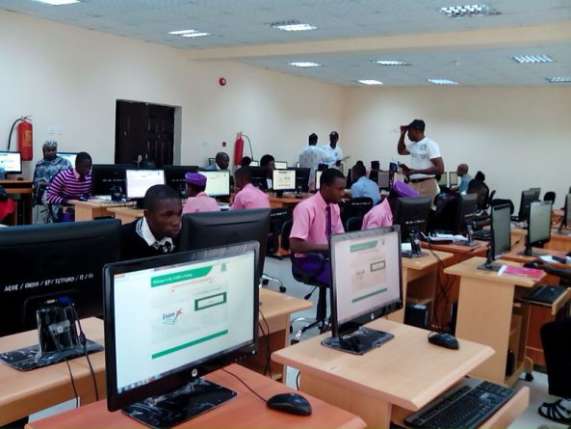NEC Direct Govs To Declare State Of Emergency On Education
The National Economic Council, NEC, has directed the 36 Governors of the federation to declare a state of emergency on the education sector.
The action is geared towards arresting the out-of-school children, promoting adult literacy and special needs education, reviving Science, Technology, Engineering and Mathematics, STEM, and Technical, Vocational Education and Training, TVET, among others.
This is as NEC comprised of the governors and ministers in the Economic Management Team, including Minister of Finance, Minister of Budget and National Planning as well as the Governor of Central Bank of Nigeria, CBN, failed to discuss on the Minimum wage.
Meanwhile, Governors have supported President Muhammadu Buhari’s position that states that have not paid salaries should not benefit from the last trench of Paris Club Refund.
Briefing State House correspondents after the NEC, monthly NEC chaired by the Vice President, Yemi Osinbajo at the Council Chamber Presidential Villa Abuja, the Deputy Governor of Edo State, Comrade Philip Shuaibu stated that the meeting deliberated on the report of the NEC ad-hoc committee on the revival of the education sector in Nigeria.
He said that it was resolved that “all Governors to declare a state of emergency in the education sectors of their respective states and demonstrate their commitment to revamping education.”
Comrade Shuaibu explained that the ad-hoc committee’s interim report observed that a multi-frontal approach was required to tackle the various factors militating against the achievement of the nation’s educational objectives, in view of the multi-dimensional nature of the crisis in the education sector.
He said the committee strongly recommended that the federal government, states and local governments collaborate to vigorously implement, and sustain action on the 10 pillars of the Ministerial Strategic Plan developed by the Federal Ministry of Education
He said, “Among the areas of attention are: the issue of out-of-school children, promoting adult literacy and special needs education, reviving Science, Technology, Engineering and Mathematics (STEM) and Technical, Vocational Education and Training (TVET), strengthening basic education, prioritizing teacher education, capacity building and professional development, ensuring quality and access in tertiary education, promoting ICT in education, boosting library services in education etc.”
He further stated that NEC resolved that the federal and state governments should allocate a minimum of 15 percent of their budgets to education in order to revolutionalise the sector, as well as constitute special task force to manage the funds and oversee the infrastructural overhaul of selected schools for intervention across the federation.
He said Council decided that while the interim report was being reviewed by the members of the Council, a more detailed report should be prepared and presented at the next NEC meeting when decisions would be taken on the proposed recommendations.
He said, “There is a strategic plan developed by the federal ministry of education beyond that you know the world is going global and technology is driving the world, if you look deeply, our major areas of development beyond infrastructure is the basic education and teachers and the council discovered that we need to also look into the area of technical education out of school children
“If we address basic education and the foundation is well laid at that level, obviously the secondary and tertiary education would have been half solved, declaring state of emergency is at the basic and we must look at the indices that make up our challenges especially at the area of technology.
“So, the ministerial plan is for all the states and local government to key in so that all will be on the same page. It’s not going to be one of those documents that will be kept aside, and we are all unanimous in addressing it and all the states have agreed on this.”
Shuaibu also briefed on states Gross Domestic Computation (SGDP) for 11 states (2013-2017) explaining that the background of the computation was to know the sizes of the economy in each of States, how much do a Nigerian state contribute to the Nigerian economy, what sector is best to invest in a particular State, what are the key sectors that can drive growth, create employment and generate tax revenue for the states, and which sector need government intervention or support .




